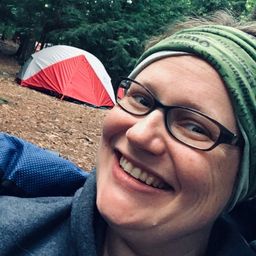Kendra E. Fortin, Chris Hurst and Bryan S.R. Grimwood Title : Travel, Land and Settlerhood: A Collective Memory Work Study
My Session Status
by
Kendra E. Fortin
Chris Hurst
and
Bryan S.R. Grimwood
Tourism experiences, memories and narratives are inscribed with meanings of land and
identity. Activities often associated with Canadian summers, such as camping and cottaging,
convey a façade of simplistic living. However, these pursuits are made possible through the
historical and ongoing displacement of Indigenous peoples and the attempted erasure of
Indigenous histories. Drawing from theoretical insights associated with settler colonial studies
and collective memory work (CMW), the purpose of this study was to illuminate the multiple
and contested meanings of land conveyed in tourism memory narratives of Settler Canadians.
As part of a multi-day nature-based tourism experience in July 2019, 14 students enrolled in an
upper-year eco-tourism course participated in a CMW process with the course instructor and
teaching assistant. To emphasize the equal position of those partaking in the CMW process, all
participants were referred to as co-researchers. This study consisted of two main methods of
data generation. First, each co-researcher wrote two stories recounting personal travel
memories: one that demonstrated genuinely Canadian qualities, and one that demonstrated
genuinely Indigenous qualities. The written memory narratives were each 200-500 words in
length, used a pseudonym, and written in third person. As a group, co-participants then read
the narratives aloud and discussed the deeper meanings present in the personal memories.
These group discussions were recorded and transcribed for further analysis and theorization. In
this presentation, we report on thematic outcomes associated with two questions:
(1) what meanings of land were conveyed by co-participants in the CMW process? and,
(2) how are settler identities shaped by the meanings of land conveyed through the
collective memory work process?
Emerging from our thematic analysis of the qualitative data were several meanings, relating to
land as an organizer, connector, educator, and sustainer. These meanings informed further
analysis that illuminated how Settler colonizer identities are both perpetuated and resisted
through travel. Particularly, Settler colonizer identities were upheld through travel stories that
romanticized Canadian culture and history, thereby perpetuating incomplete and misconstrued
land histories. However, the CMW process also helped co-participants begin to unravel the
ways in which they are implicated in settler colonialism and thus responsible for advancing
decolonization and reconciliation. These study outcomes build upon emerging scholarship on
tourism and settler colonialism and contributes p


